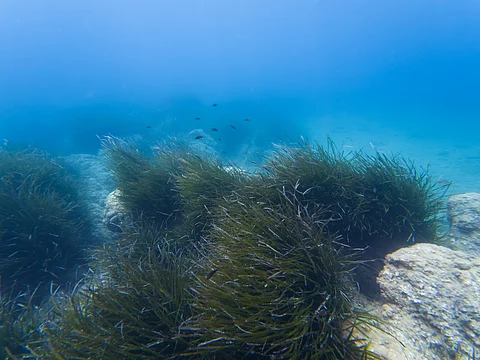

Seagrass in the Mediterranean Sea off the coast of France.
Photo: AdobeStock.
The European Commission has this week published a new assessment of Member States’ efforts to protect marine and coastal ecosystems under the EU's Marine Strategy Framework Directive (MSFD), described as the EU's "main legislative tool to protect the health of its coasts, seas, and oceans through an ecosystem-based approach to managing the EU's marine resources".
The assessment, released on Tuesday 4 February, evaluates over 2,000 measures across all EU marine regions, and will inform the upcoming European Water Resilience Strategy announced by Commission President Ursula von der Leyen.
The report finds European Union member states have made some progress in marine protection, including in marine litter reduction, seafloor protection and better management of non-indigenous species, according to a European Commission news announcement.
However, the assessment also finds "limited progress" in restoring marine biodiversity. Some species and habitats remain under-protected, with non-commercial fish, cephalopods, turtles, and pelagic habitats in particular requiring additional conservation efforts. The report also raises concerns over nutrient pollution, chemical contamination, and underwater noise, where it says measures remain insufficient.
The assessment covers 17 member states that submitted reports on time, with evaluations for the remaining five coastal nations expected soon. The Commission is also conducting a broader review of the MSFD, set for release in early 2025.
However, the Commission warns, "How much and by when the measures will reduce harm to the marine environment and help achieve good environmental status remains difficult to ascertain, based on what was reported by Member States."
The Commission is now urging member states to "increase ambition and accelerate action" to meet the MSFD objectives, and implement additional measures to reduce pollution and protect marine biodiversity.
It also recommends boosting funding and investment for marine conservation efforts, and "putting in place governance mechanisms that support the design and implementation of ambitious, coherent, coordinated, fair and effective programmes of measures".
The assessment report, published on 4 Februrary 2025, can be accessed on the European Commission website.
